Have you ever wondered why do dogs have wet noses? This fascinating characteristic is not just an adorable feature; it serves several important purposes that can surprise even the most seasoned dog owners! A wet nose on your furry friend is often associated with health and happiness, but what exactly does it mean? In this blog post, we will explore the surprising reasons behind this intriguing phenomenon, uncovering the science and instincts that contribute to your dog’s moist snout. Did you know that a dog’s nose can actually help them sense the world around them? That’s right! A wet nose might be a sign of a well-hydrated pup, but it also plays a crucial role in their sense of smell and overall well-being. Curious to learn more? Keep reading to find out not just why do dogs have wet noses, but also how this unique trait can affect their behavior, health, and even their ability to bond with you! Prepare to be amazed by the incredible world of canine biology, and discover tips on how to keep your dog’s nose in tip-top shape!
The Science Behind Wet Noses: Understanding Your Dog’s Unique Anatomy

Dogs are some of the most beloved pets in the world, and one of the most curious features about them is their wet noses. Many people often ask, “Why do dogs have wet noses?” It’s not just a quirky trait; there’s actually a lot of science behind it. In this post, we’ll explore the anatomy of a dog’s nose, the reasons behind its wetness, and how this unique feature helps dogs in their daily lives.
The Anatomy of a Dog’s Nose
Dog noses are a marvel of biological engineering. They are not just for looks; they play a crucial role in how dogs interact with the world. Here are some important points about their anatomy:
- Nasal Cavity Size: Dogs have a larger nasal cavity compared to humans, which allows for more scent receptors.
- Scent Receptors: Depending on the breed, dogs can have anywhere from 200 million to 300 million scent receptors. Humans, in contrast, have about 5 million.
- Moisture Glands: Their noses are covered with a thin layer of moisture, which helps to capture scent particles in the air.
Why Are Dogs’ Noses Wet?
So, why do dogs have wet noses? The answer lies in several fascinating reasons.
- Enhanced Smell: The moisture on a dog’s nose helps to trap scent particles. When the nose is wet, it can absorb more aromas. This is essential for hunting and tracking.
- Thermoregulation: Dogs do not sweat like humans; instead, they regulate their body temperature partly through their noses. A wet nose can help cool down the dog in hot weather.
- Health Indicator: A dog’s nose can also be an indicator of its health. A nose that is excessively dry might suggest dehydration or illness.
The Evolutionary Perspective
Historically, the wet nose has been a crucial adaptation for dogs. Ancestors of modern dogs relied heavily on their sense of smell for survival, whether it was hunting prey or avoiding predators. Over time, dogs with more efficient scenting capabilities, including a well-hydrated nose, likely had higher survival rates.
- Prey Detection: The moisture helps dogs detect prey from long distances. It is believed that their ancestors used this ability to hunt more effectively.
- Social Interaction: Wet noses also play a role in social behaviors among dogs. Dogs often greet each other by sniffing, and a wet nose can signify a friendly and approachable demeanor.
What Happens When a Dog’s Nose is Dry?
A dry nose does not always mean something is wrong, but it can be a sign to pay attention. Here’s a quick list of possible reasons a dog might have a dry nose:
- Dehydration: Not drinking enough water can lead to a dry nose.
- Illness: Certain health issues, like fever or infections, may cause dryness.
- Climate: Hot or windy weather can dry out a dog’s nose.
Fun Facts About Dog Noses
- Unique Patterns: Just like human fingerprints, every dog has a unique nose print that can be used for identification.
- Dogs vs. Humans: While humans might smell a pizza, dogs can distinguish between the spices in it, thanks to their superior sense of smell.
- Nose Work: Many dogs are trained in nose work, where they use their sense of smell to locate specific items or scents.
Comparing Dog Noses to Other Animals
Dogs aren’t the only animals with remarkable noses. Here’s a quick comparison:
| Animal | Number of Scent Receptors | Nose Moisture Function |
|---|---|---|
| Dogs | 200-300 million | Traps scent particles |
| Cats | 50-80 million | Similar function |
| Bears | 2,100 million | Excellent for tracking |
| Elephants | 2,000 million | Detects water from miles away |
Dogs have evolved a unique wet nose that benefits them in numerous ways, from hunting to social interaction. Understanding the science behind this feature not only deepens our knowledge of dogs but also enhances the bond we share with these incredible animals. Next time you see your furry friend, take a moment to appreciate that wet nose and all the amazing things it does!
5 Surprising Benefits of a Wet Nose: What Your Dog’s Snoot Reveals

When you look at your dog, you might notice that their nose is often wet. But have you ever wondered why that is? There’s more to a wet nose than just being adorable. In fact, understanding why dogs have wet noses can reveal some surprising benefits. Let’s dive into this fascinating topic and discover what your furry friend’s snoot can tell you.
1. Natural Cooling System
Dogs don’t sweat like humans do. Instead, they rely on their nose to help regulate body temperature. A wet nose helps cool down their body. The moisture evaporates, creating a cooling effect. This is especially important on hot days or after a fun game of fetch in the park. You might notice your dog’s nose is wetter after a romp outside!
- Helps maintain a stable body temperature
- Essential during exercise and hot weather
- Evaporation of moisture cools the body
2. Enhanced Sense of Smell
Did you know that a dog’s sense of smell is about 10,000 to 100,000 times more sensitive than humans? The wet surface of their nose actually helps trap scent particles. This allows them to detect smells more efficiently. When you see your dog sniffing around, their wet nose is working hard to gather information about their surroundings.
- Wet noses capture scent particles better
- Helps dogs identify familiar scents, like their owners
- Important for tracking and hunting
3. Communication Tool
Dogs use their noses not just to smell but also to communicate with other dogs. A wet nose can be a sign of excitement or curiosity. When dogs meet, they often greet each other by sniffing each other’s noses. This behavior is like a handshake in the canine world. A wet nose can convey a lot of information about their mood and intentions.
- Wet noses indicate excitement or friendliness
- Helps establish relationships with other dogs
- Important for social interactions
4. Health Indicator
The condition of a dog’s nose can sometimes indicate their health status. A wet, cool nose is often a sign of a healthy dog. Conversely, if your dog has a dry or cracked nose, it might be a sign of dehydration or illness. Monitoring your dog’s nose can help you catch potential health issues early on.
- Wet noses often mean hydration and good health
- Dry noses could indicate dehydration or illness
- Changes in nose texture can be important to monitor
5. Behavior and Emotions
Your dog’s nose can also give insights into their emotional state. A wet nose might mean they feel relaxed and comfortable. When they’re anxious or scared, their nose could become drier. Paying attention to these changes can help strengthen the bond between you and your furry friend.
- Wet noses suggest comfort and relaxation
- Dry noses may indicate anxiety or stress
- Helps owners understand their dog’s emotional needs
Fun Facts About Dogs’ Noses
- Dogs have around 300 million scent receptors in their noses compared to about 5 million in humans.
- The shape of a dog’s nose varies by breed and can affect their sense of smell.
- Puppies are born with dry noses, and they usually become wet as they grow.
- Certain breeds, like Bloodhounds, are known for their exceptional smelling abilities.
Myths About Wet Noses
Despite the numerous benefits of wet noses, there are also myths surrounding them:
- Myth: A wet nose means a dog is sick.
Fact: A wet nose is often a sign of health, but it’s just one of many indicators. - Myth: Dogs can’t smell if their nose is dry.
Fact: Dogs can still smell quite well with a dry nose, but wet noses enhance their ability.
Practical Tips for Nose Care
Taking care of your dog’s nose is important, too. Here are some tips:
- Keep your dog hydrated, especially in warm weather.
- Regularly check their nose for cracks or dryness.
- If you notice any unusual changes, consult with a veterinarian.
Understanding why dogs have wet noses can deepen your appreciation for these lovable companions. From cooling their body to enhancing their sense of smell, a wet nose serves multiple purposes that are crucial for your dog’s well-being. So next time you give your furry friend a pat, take a moment to appreciate that little wet snoot!
Why Are Some Dogs’ Noses Wetter Than Others? Factors That Influence Moisture Levels

When we think about our furry friends, one of the most curious features they have is their wet noses. You may have noticed that some dogs have noses that are dripping with moisture, while others are barely damp. So, why do dogs have wet noses? And why are some dogs’ noses wetter than others? These questions can lead us on a fascinating journey into the world of canine biology and behavior.
The Function of a Dog’s Nose
A dog’s nose isn’t just for sniffing out treats or tracking down a lost toy. It’s a complex organ that plays a vital role in their overall health and communication. Wet noses can be a sign of a happy and healthy dog, but also a clue into how well they can interact with the world around them.
- Scent Detection: Dogs have an incredible sense of smell, up to 100,000 times more acute than humans. The moisture on their nose helps to absorb scent particles, increasing their ability to detect various smells.
- Temperature Regulation: A wet nose can aid in thermoregulation, helping dogs maintain their body temperature. Dogs don’t sweat like humans do, so their noses may play a part in this process.
- Health Indicator: The moisture levels of a dog’s nose can also indicate their health status. A dry nose can sometimes signal illness, dehydration, or fever.
Factors Influencing Nose Moisture
Not all dog noses are created equal. There are several factors that can influence how wet or dry a dog’s nose may be.
- Breed Differences: Different breeds can have varying nose moisture levels. For example, breeds like the Labrador Retriever may have wetter noses compared to Bulldogs.
- Weather Conditions: Humidity and temperature can greatly affect nose moisture. A hot, dry day might lead to a drier nose, while a cool, moist environment may result in a wetter nose.
- Activity Level: Dogs that are active and energetic may have wetter noses due to increased panting and moisture production during playtime.
- Health Factors: Certain health conditions or medications can affect a dog’s nose moisture. For instance, allergies, infections, or other illnesses might lead to a dry nose.
- Age: Puppies often have wetter noses than older dogs. As dogs age, their noses may become drier due to changes in skin elasticity and moisture production.
Why Do Dogs Have Wet Noses?
The question “Why do dogs have wet noses?” can be answered through both biological and evolutionary lenses.
- Evolutionary Aspect: Wet noses may have developed as an evolutionary advantage, allowing dogs to thrive as hunters and companions. The moisture helps them to detect prey or navigate their environment more effectively.
- Biological Necessity: The wetness of a dog’s nose is partly due to the secretion of mucous from specialized glands. This mucous serves to enhance scent absorption, making it easier for dogs to track scents.
Catching a Cold or Not
You might have heard that if a dog’s nose feels warm or dry, it might be sick. This is a common myth. While a change in nose moisture can indicate health issues, it’s not a definitive diagnostic tool. Here are some points to consider:
- A warm or dry nose doesn’t always mean a dog is sick.
- Other signs like lethargy, lack of appetite, or changes in behavior are more reliable indicators of health issues.
- Regular vet check-ups are essential for monitoring dog health.
How to Care for Your Dog’s Nose
Keeping your dog’s nose healthy is important. Here are some tips:
- Hydration: Ensure your dog has access to fresh water at all times.
- Skin Care: Apply a dog-safe moisturizer if your dog has persistent dryness.
- Regular Vet Visits: Regular check-ups can help catch any potential health issues early.
Quick Facts About Dog Noses
- Dogs have about 300 million smell receptors in their noses.
- Their nose prints are unique, much like human fingerprints.
- Dogs can even detect certain diseases through their sense of smell.
Understanding why some dogs’ noses are wetter than others can deepen your appreciation for these remarkable animals. Dogs communicate in many ways, and their wet noses are just one fascinating aspect of their biology. Whether your dog has a wet or dry nose, it’s essential to pay attention to their overall behavior and health. So the next time you give your pup a pat, take a moment to appreciate that moist little nose and all it does for them!
Is a Wet Nose a Sign of Health? Debunking Common Myths About Dog Noses
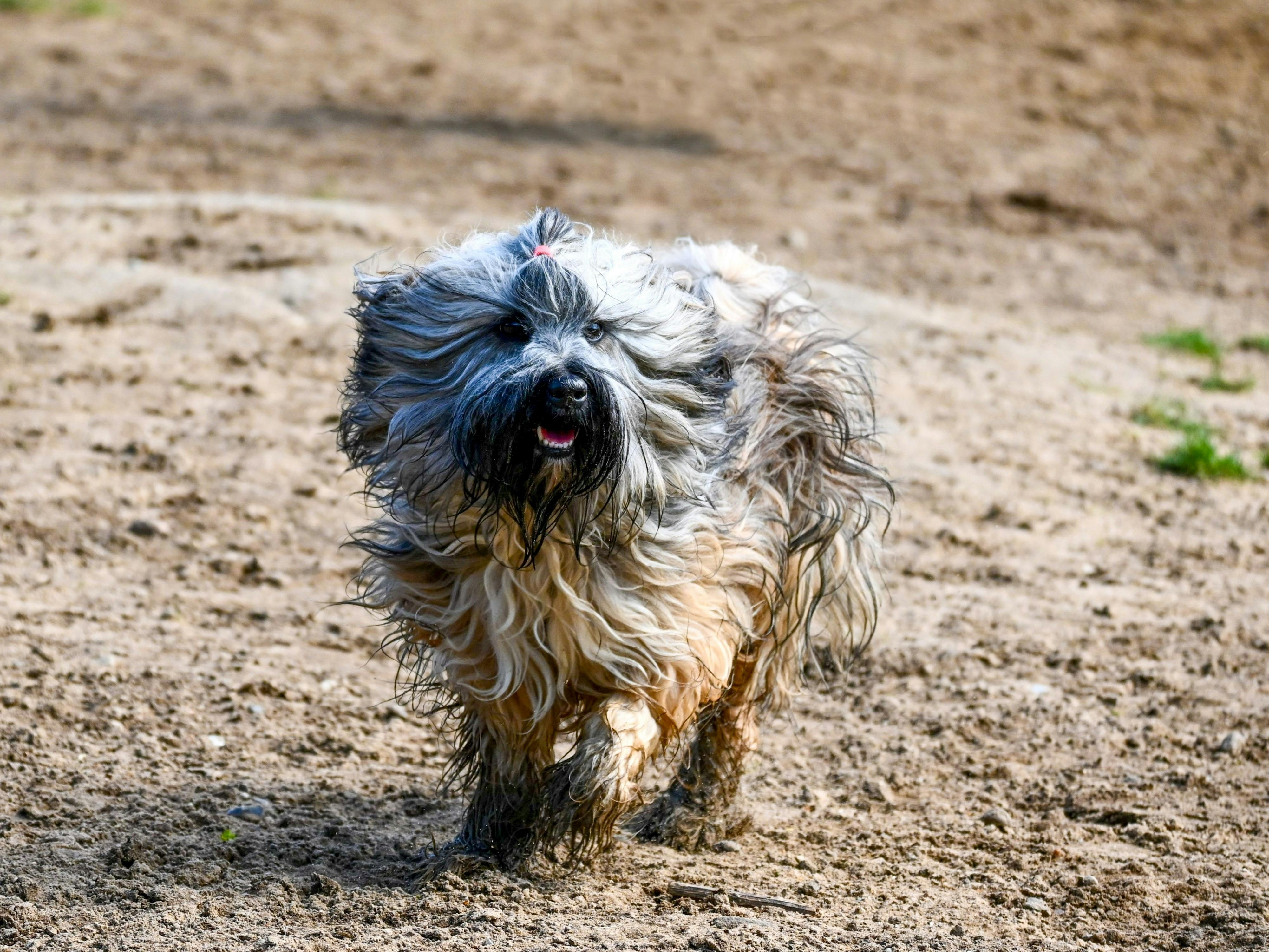
When you think about dogs, you might imagine their wagging tails, floppy ears, and yes, their moist noses. But have you ever wondered, is a wet nose a sign of health? There’s a lot of myths floating around about dog noses, and we are here to clear some of them up. Let’s dive into the fascinating world of canine noses and discover why they are wet and what that really means for your furry friend.
Why Do Dogs Have Wet Noses?
Dogs have wet noses for several reasons, and it’s not just about health. The moisture on their noses can serve multiple functions, including:
Scent Detection: A wet nose helps dogs to take in scents more effectively. The moisture captures scent particles, which assists in the olfactory process. Dogs live in a scent-based world, and their noses are like high-powered radar systems.
Thermoregulation: Dogs primarily regulate their body temperature through panting, but their noses also play a role. The wetness on a dog’s nose can help cool them down, especially during warm weather.
Communication: A dog’s nose can convey emotions and health status to other dogs. A wet nose might indicate excitement or curiosity, while a dry nose can sometimes signal stress or discomfort.
Is a Wet Nose Always a Sign of Good Health?
Not necessarily! While a wet nose is often seen as a sign of a healthy dog, it isn’t the only indicator of well-being. Here are some important points to consider:
Temperature Fluctuations: A wet nose doesn’t always mean the dog is healthy; it can just be a reaction to the environment. If a dog is outside in the rain or after drinking water, their nose may be wet.
Illness Indicators: A dry nose can sometimes indicate a health issue, but this is not a hard rule. Some dogs naturally have drier noses, and others may have a dry nose when they are sleeping or resting.
Behavioral Changes: Observe your dog’s behavior. If they have a dry nose and show signs of lethargy, decreased appetite, or unusual behavior, it might be time to consult your veterinarian.
Common Myths About Dog Noses
There’s many myths swirling around about dog noses. Here’s a breakdown of the most common ones:
Myth: A Wet Nose Equals Good Health
- Reality: While many healthy dogs have wet noses, it’s not a definitive health indicator.
Myth: A Dog’s Nose Should Always Be Cold
- Reality: Nose temperature can vary widely among dogs. It can be warm or cool and still not indicate a health issue.
Myth: Dogs Get Their Scent from Their Noses
- Reality: The nose helps in scent collection, but dogs have a highly developed olfactory system in their brains that processes these scents.
Myth: All Dogs Have the Same Nose Texture
- Reality: Just like fingerprints for humans, dog noses can have unique patterns and textures that vary from breed to breed.
A Quick Look at Dog Nose Health
To help you understand more about dog nose health, here’s a simple checklist of signs to watch for:
- Wetness: Is the nose consistently wet?
- Color: Does the color change from the usual? Pink or red could indicate irritation.
- Cracks or Lesions: Are there any visible cracks, sores, or lesions?
- Behavior Changes: Is your dog acting differently? Eating less? Avoiding play?
Fun Facts About Dog Noses
- Dogs have around 300 million scent glands in their noses, compared to about 5 million in humans.
- Some breeds, like Bloodhounds, have such a keen sense of smell that they can follow a scent trail that is several days old!
- The moisture on a dog’s nose is primarily made up of saliva and can be influenced by the weather and the dog’s activity level.
Understanding the nuances of your dog’s nose can be both fascinating and beneficial. A wet nose can indicate many things, and while it can be a sign of health, it’s not the only factor to consider. Regular vet check-ups will help ensure your dog stays happy and healthy. Always keep an eye on your furry friend’s behavior and consult with a veterinarian if you have any concerns. After all, being informed is the best way to care for your loyal companion!
How Do Dogs Use Their Wet Noses to Navigate the World? The Role of Scent
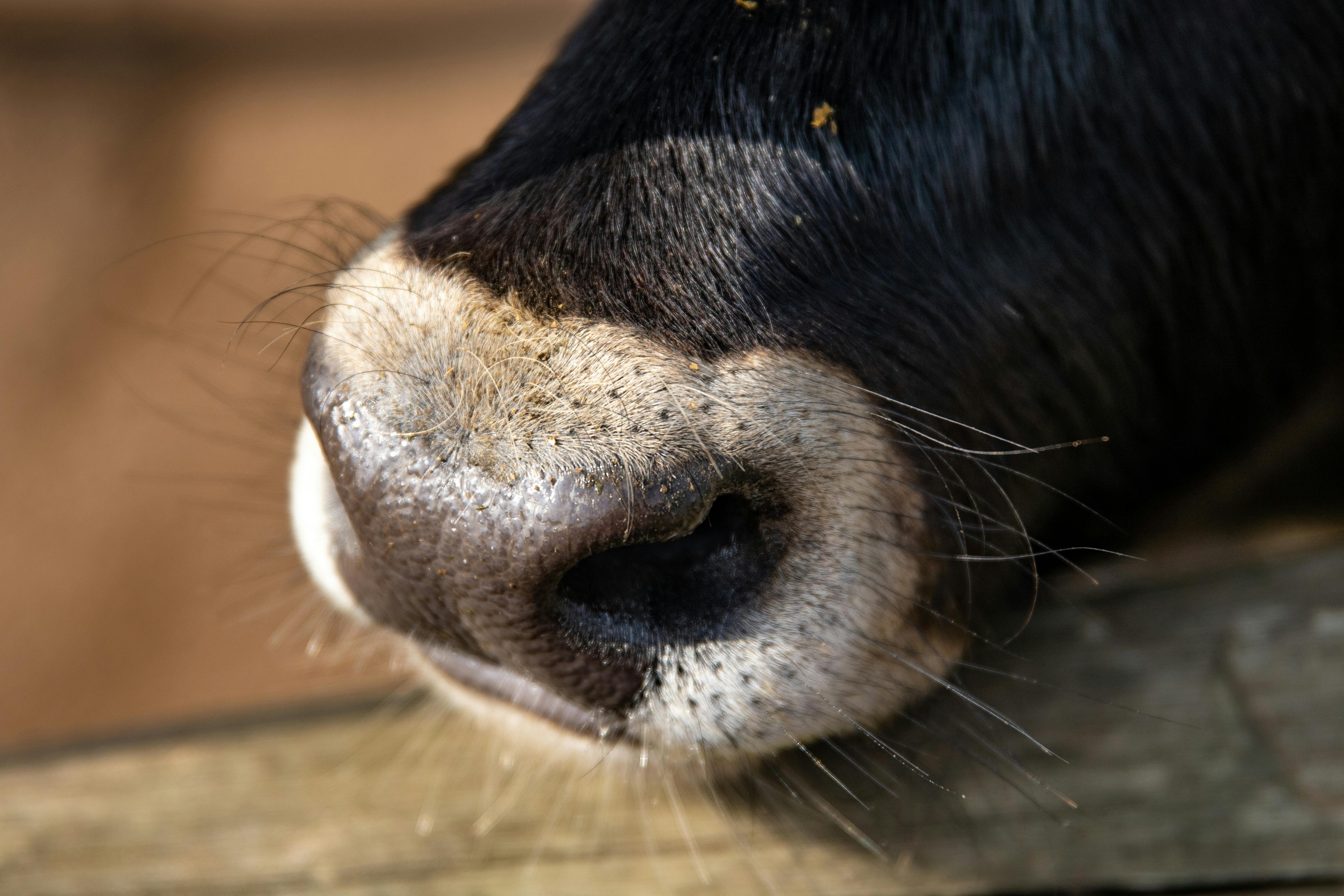
Dogs are truly fascinating creatures, and their wet noses play a bigger role than just being cute. Most people wonder, why do dogs have wet noses? This question leads us to explore how dogs use their noses to navigate the world around them. Their sense of smell is incredibly advanced, allowing them to experience life in a way humans can hardly imagine.
The Science Behind Wet Noses
Many might not know that a dog’s nose is covered with a special kind of skin that helps enhance their sense of smell. This moist surface holds scent molecules more effectively than dry skin would. When dogs sniff around, they absorb those molecules, which then travel to their olfactory receptors. In fact, dogs have about 300 million olfactory receptors in their noses compared to a human’s mere 5 million. This is why dogs can pick up on scents that are undetectable to us.
- Dogs’ noses, when wet, help them capture more scent particles
- The moisture allows better detection of odors
- Wet noses help to cool off their body temperature, too
Why Do Dogs Have Wet Noses?
You may wonder, why do dogs have wet noses? Well, there are multiple reasons! Firstly, having a wet nose helps dogs to sense the world better. A wet nose is important for their ability to smell, and it’s not just about catching scents. Their noses are like little radar systems, helping them to track down food, identify other animals, and even detect emotions in humans.
Here are some key reasons why a dog’s nose is wet:
- Scent Detection: As mentioned, moisture helps to trap scent particles.
- Temperature Regulation: Dogs lack sweat glands, so they pant and rely on their noses to help keep cool.
- Communication: Dogs use their noses to gather information about other animals and humans, which is essential for social interactions.
How Dogs Use Their Noses to Navigate
Dogs are often referred to as “scent hounds” because they rely heavily on their sense of smell. They can recognize different scents and even differentiate between various odors. This capability is significant when it comes to navigation. But how exactly do they use their noses to find their way around?
- Tracking: Dogs can follow a scent trail left by another animal or person. This is how search and rescue dogs operate.
- Identifying Locations: They can recognize familiar places through their sense of smell. A dog can find its way home just by sniffing the air!
- Detecting Changes: Dogs are sensitive to changes in their environment, including new scents that might indicate danger or something unusual.
The Historical Context of Dogs and Scent
Historically, dogs have been bred for various purposes, many of which involve their keen sense of smell. For instance:
- Hunting Dogs: Bred to track game by scent.
- Service Dogs: Trained to detect medical conditions like low blood sugar or seizures.
- Detection Dogs: Used by law enforcement to sniff out drugs, explosives, and even human remains.
Fun Facts About Dogs’ Noses
Here are some interesting tidbits you may not have known about dogs and their noses:
- Dogs’ noses are as unique as human fingerprints. Each dog has its own nose print!
- A dog’s sense of smell is 40 times better than that of a human.
- Bloodhounds can track scents that are over a week old!
Maintaining a Healthy Nose
To keep your dog’s nose healthy, there are a few simple practices owners should consider:
- Regular Vet Check-ups: Ensure that there’s no underlying health issue affecting the nose.
- Hydration: Keeping your dog well-hydrated can help maintain moisture levels.
- Avoiding Irritants: Stay away from harsh chemicals that could dry out or irritate the nose.
The Bottom Line
In summary, dogs use their wet noses to navigate their world in a way that’s both fascinating and complex. Their ability to detect scents is not only a biological marvel but also plays a crucial role in their interaction with the environment. Whether it’s tracking, identifying, or communicating, their wet noses are essential tools in their daily lives. Understanding why do dogs have wet noses and how they function can deepen the bond between pets and their humans. So next time you see that adorable wet nose, remember the remarkable roles it plays in your furry friend’s life!
Wet Nose vs. Dry Nose: What Every Dog Owner Should Know About Nose Health
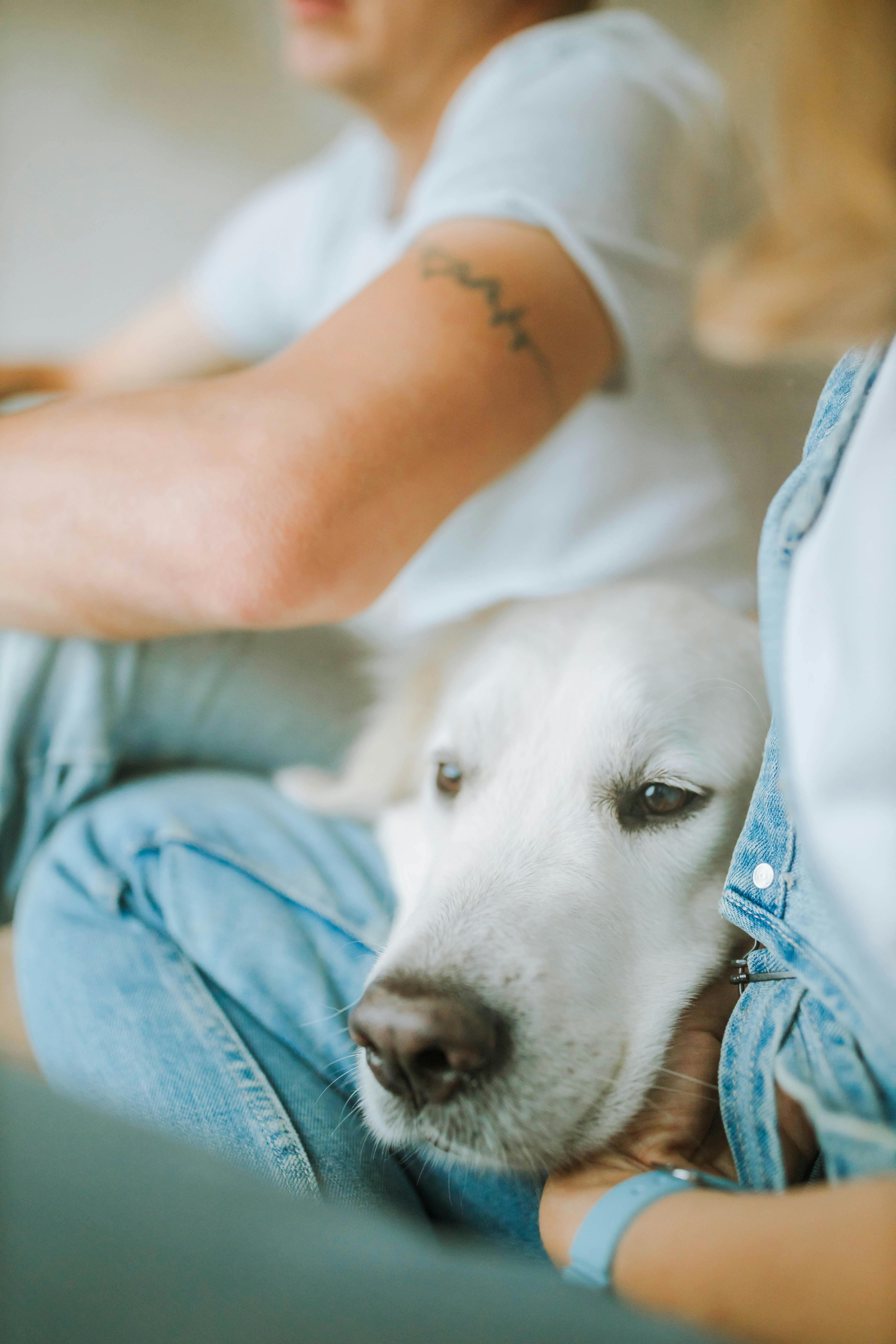
When you own a dog, you probably notice a lot of unique traits and behaviors. One of the most fascinating characteristics is their noses. Have you ever wondered why some dogs have wet noses while others have dry noses? This topic can lead to many questions for dog owners, and understanding nose health is crucial. So, let’s dive into the world of canine noses, focusing on wet nose vs. dry nose, and uncover the reasons why dogs have wet noses.
Why Do Dogs Have Wet Noses?
Dogs typically have wet noses for several reasons, which is not just a random quirk of nature. Here are some of the most common reasons why a dog’s nose tends to be moist:
Temperature Regulation: Dogs don’t sweat like humans do. Instead, they regulate their body temperature through panting and the moisture on their noses. A wet nose helps to cool them down more efficiently.
Sense of Smell: A wet nose can enhance a dog’s ability to smell. The moisture helps to trap scent particles, making it easier for them to pick up on various smells in their environment.
Health Indicator: Generally, a wet nose is considered a sign of good health. A healthy dog’s nose should feel cool and moist. But, not all dogs will have a consistently wet nose.
Wet Nose vs. Dry Nose: What’s the Difference?
Understanding the difference between a wet nose and a dry nose can be crucial for dog owners. Here’s a simple comparison:
| Feature | Wet Nose | Dry Nose |
|---|---|---|
| Temperature | Usually cool | Can be warm |
| Moisture Level | High | Low |
| Health Indicator | Generally healthy | Potential sign of illness |
| Scent Detection | More effective | Less effective |
Common Reasons for a Dry Nose
There are many reasons why your dog might have a dry nose. Some of them are harmless, while others could indicate a health issue. Here’s a list of common causes:
Dehydration: If your dog is not drinking enough water, their nose may dry out.
Weather Conditions: Hot or windy weather can cause a dog’s nose to lose moisture quickly.
Allergies: Dogs can be allergic to various things in their environment, leading to a dry and irritated nose.
Illness: Sometimes, a dry nose can be a sign of a more serious condition like a fever or skin problem.
Age: Older dogs may naturally experience a change in nose moisture.
Nose Health: What Should Owners Look For?
As a responsible dog owner, it’s essential to monitor your pet’s nose health. Here are some signs to keep an eye on:
Color Changes: If your dog’s nose changes from black to pink or red, it might be a sign of an issue.
Cracks or Sores: Dry or cracked skin can indicate dehydration or allergies.
Excessive Moisture: A nose that’s overly wet could be a sign of a respiratory infection or other health concerns.
Discoloration: Any unusual spots or discolorations should be checked by a veterinarian.
Maintaining Your Dog’s Nose Health
Taking care of your dog’s nose is easier than you think. Here are some practical tips:
Hydration: Always provide fresh water for your dog. Staying hydrated helps maintain a moist nose.
Regular Vet Check-ups: Regular visits to the veterinarian can help catch any potential issues early.
Skin Care: If your dog has dry patches on their nose, consider using a nose balm that’s safe for dogs.
Environmental Care: Protect your dog from harsh weather conditions. Use dog-friendly sunscreen if your dog has a light-colored or thin coat.
The Bottom Line
Understanding the difference between wet and dry noses in dogs is important for their overall health. A moist nose typically indicates a happy, healthy dog, while a dry nose can suggest a variety of issues. Remember to observe your dog’s nose regularly and consult a veterinarian if you see any concerning changes. By being proactive, you can ensure your furry friend stays healthy and happy for years to come.
Curious Canines: Why Do Dogs Lick Their Noses? The Behavior Explained
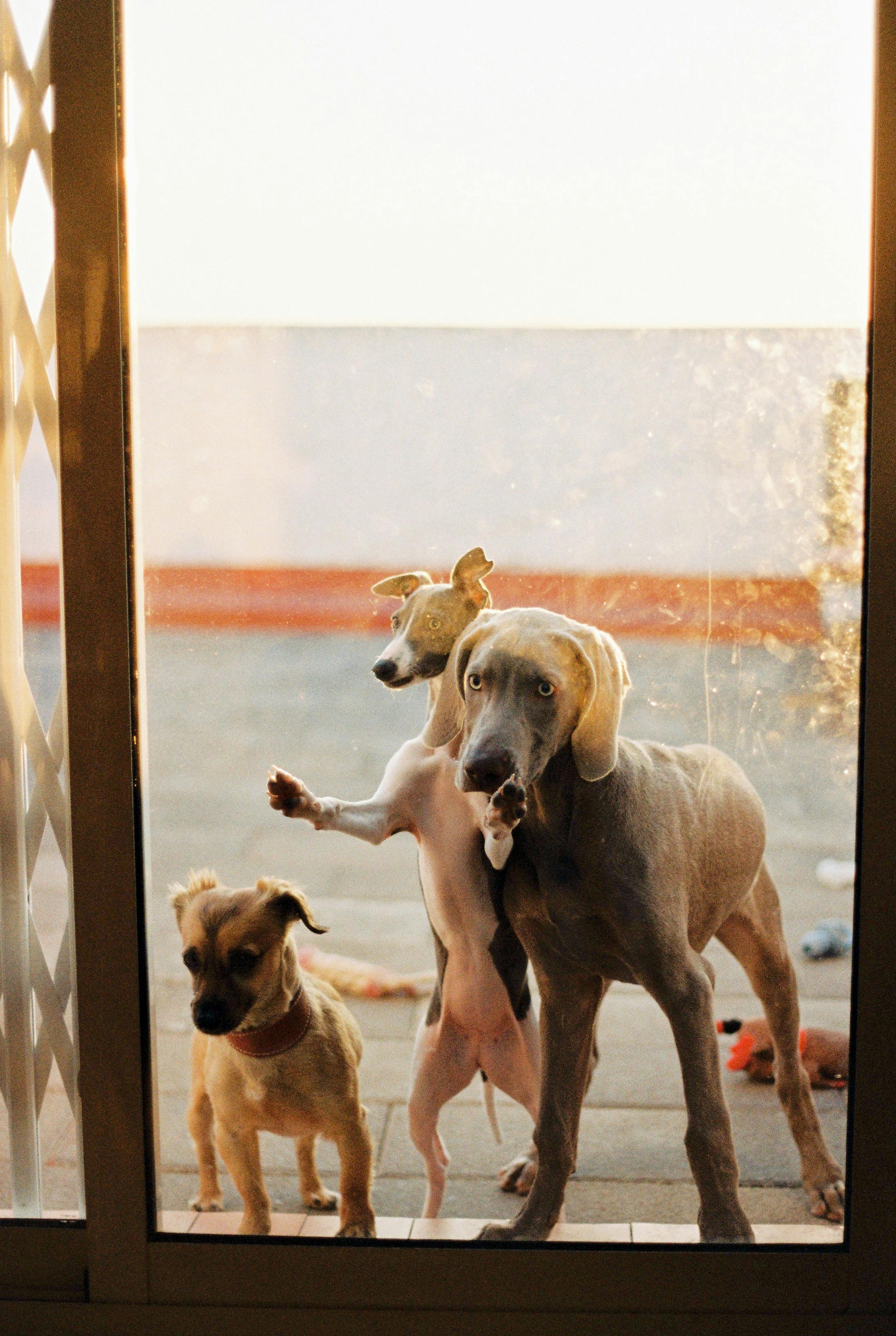
Curious Canines: Why Do Dogs Lick Their Noses? The Behavior Explained, Why Do Dogs Have Wet Noses? Discover the Surprising Reasons!
Ever notice how your furry friend seems to constantly lick his nose? Or, why is it always wet? If you ever found yourself pondering these questions, you’re not alone! Understanding the reasons behind these canine behaviors not only satisfies our curiosity, but also helps us connect better with our four-legged companions.
Why Do Dogs Lick Their Noses?
Dogs lick their noses for a variety of reasons, and it can be quite a fascinating subject to explore. Here’s some insights into this common behavior:
Taste and Smell: Dogs have an incredible sense of smell, and licking their noses helps to enhance their olfactory senses. When they lick their noses, they moisten the scent receptors, allowing them to smell better. It’s like a little upgrade to their sniffing ability!
Communication: Licking can also be a form of communication. Dogs may lick their noses when they are feeling anxious or unsure. It’s a way of expressing emotions and calming themselves in stressful situations. This behavior is often seen in dogs when they meet new people or other dogs.
Cleaning: Just like humans wash their hands, dogs lick their noses to keep them clean. Their noses can collect dirt, food particles, and other debris, so licking is a natural self-grooming behavior.
Health Indicator: Sometimes, excessive nose licking can indicate health issues. If a dog is licking their nose more than usual, it could be a sign of allergies, gastrointestinal problems, or even dental issues. Paying attention to changes in licking behavior can help owners notice potential health concerns early.
Why Do Dogs Have Wet Noses?
Many dog lovers often wonder, why do dogs have wet noses anyway? Well, there’s a science behind it! Here’s a few key reasons:
Temperature Regulation: Dogs do not sweat like humans. Instead, they rely on their noses to help regulate their body temperature. When a dog’s nose is wet, it helps them cool down as the moisture evaporates, much like how sweating cools us off.
Enhanced Smelling: Just like licking, a wet nose helps dogs smell better. The moisture in a dog’s nose helps to capture scent particles, allowing them to detect smells more effectively. This is why dogs often seem to know when something is amiss or can track scents that we mere humans cannot!
Health Indicator: A wet nose is often a sign of a healthy dog. However, it’s not the only indicator. A dog’s nose can be dry for various reasons, including weather changes or just waking up from a nap. So, it’s important not to panic if you notice a little dryness.
Fun Facts About Dog Noses
Unique Patterns: Just like human fingerprints, every dog’s nose print is unique. This means that you could identify a dog by their nose alone!
Superb Sensitivity: A dog’s sense of smell is estimated to be between 10,000 to 100,000 times more sensitive than that of humans. That’s why they can sniff out drugs or even find lost people.
Temperature Sensing: Dogs can detect changes in temperature through their noses, helping them sense environmental shifts that might be important for their survival.
When to Be Concerned
While nose licking and wetness are generally normal, there are some signs pet owners should be aware of:
Excessive Licking: If your dog is licking their nose constantly, it may be time for a vet visit. It could be due to allergies, nausea, or other underlying health issues.
Changes in Nose Texture: If the nose becomes cracked or scabbed, a vet should check it out. This could indicate an infection or other health problems.
Dry Nose for Extended Periods: If your dog’s nose is dry for a long time and shows other signs of illness (like lethargy or loss of appetite), it could be a sign they need medical attention.
Quick Reference: Reasons for Nose Licking and Wetness
| Behavior | Possible Reason |
|---|---|
| Licking Nose | Taste and smell enhancement |
| Licking Nose | Communication and anxiety |
| Licking Nose | Self-cleaning behavior |
| Wet Nose | Temperature regulation |
| Wet Nose | Enhanced sense of smell |
| Wet Nose | Sign of good health |
Understanding why dogs lick their noses and why they have wet noses can enrich how we care for and relate to our canine friends. These little quirks are part of what makes dogs so special and lovable. So, the next time you see your pup licking his nose, you’ll know it’s
The Connection Between Wet Noses and Dog Emotions: Can You Smell Their Feelings?

Do you ever wonder why dogs have wet noses? It’s a question that many dog owners might ask but don’t always seek the answers for. Interestingly, a dog’s wet nose is not just a quirky characteristic; it plays an important role in their emotional state and sensory perception. So, let’s dive into the connection between wet noses and dog emotions, and discover the surprising reasons behind this unique feature.
The Science Behind Wet Noses
Dogs’ noses are typically wet for a few reasons. First, the moisture helps them smell better. When a dog’s nose is wet, it can trap scent particles more effectively. This is because the moisture helps to dissolve the odor molecules allowing the dog to pick them up more easily. Dogs have an incredible sense of smell—around 10,000 to 100,000 times more acute than humans!
- Wet noses help in detecting scents.
- Moisture increases the ability to taste.
- It aids in cooling the dog down.
Emotional Indicators in Dogs
Have you noticed how your dog seems to get more affectionate when they’re snuggling after a rainy day? Some studies suggest that dogs use their wet noses as a social tool. When they greet people or other dogs, they might be trying to convey emotions such as happiness or curiosity. A wet nose could indicate that a dog is feeling friendly and open to interaction.
- When a dog’s nose is warm and dry, it might be a sign of stress or illness.
- A wet and cold nose usually indicates a happy and healthy pup.
- Dogs may nuzzle with their wet noses to show affection or seek comfort.
Why Do Dogs Have Wet Noses? The Causes
There are several reasons why dogs have wet noses, and understanding these can help owners better interpret their pet’s behaviors and emotional states. Here’s a list of the main reasons:
- Cooling Mechanism: Dogs don’t sweat like humans do. Their noses help regulate their body temperature through moisture evaporation.
- Sensory Enhancement: The wetness of a dog’s nose increases its ability to detect scents. Dogs rely heavily on smell, and a moist nose can make a significant difference.
- Health Indicator: A wet nose often signals good health. Conversely, a dry or cracked nose can indicate dehydration or illness.
- Social Interaction: Dogs often greet each other with their noses. A wet nose is more inviting and can help reduce tension during introductions.
Fun Facts About Dog Noses
- Did you know that each dog’s nose print is unique, much like a human fingerprint? This uniqueness can even be used for identification purposes.
- Dogs have more than 220 million scent receptors in their noses, compared to a human’s 5 million!
- The moistness of a dog’s nose can also be affected by environmental factors, such as humidity and temperature.
Understanding Your Dog’s Feelings
Being able to read your dog’s emotions is crucial for a harmonious relationship. Their wet noses are one aspect of their behavior that owners should pay attention to. Here’s how to interpret some common scenarios:
- Wet Nose, Wagging Tail: Your dog’s feeling excited and happy.
- Dry Nose, Lethargy: This could be a sign of illness; it’s time to check in with a vet.
- Frequent Nuzzling: A wet nose nudging against you might mean they’re seeking attention or affection.
Comparing Dog Breeds and Nose Characteristics
Different dog breeds can have different nose types and moisture levels. Here’s a simple comparison:
| Dog Breed | Nose Moisture Level | Emotional Implications |
|---|---|---|
| Labrador Retriever | Generally moist | Friendly and approachable |
| Chihuahua | Often dry | Could indicate stress |
| Basset Hound | Typically moist | Calm and friendly |
| Bulldog | Can be dry | May indicate health issues |
By understanding these characteristics, you can better respond to your dog’s needs.
Dogs, with their wet noses and warm hearts, bring so much joy into our lives. By learning about the significance of their wet noses, we can strengthen the bond we share with our furry friends. So next time you see that wet nose, remember it’s not just a funny quirk—it’s a window into your dog’s emotions and overall well-being.
Top 7 FAQs About Dog Noses: Answers to Your Most Pressing Questions
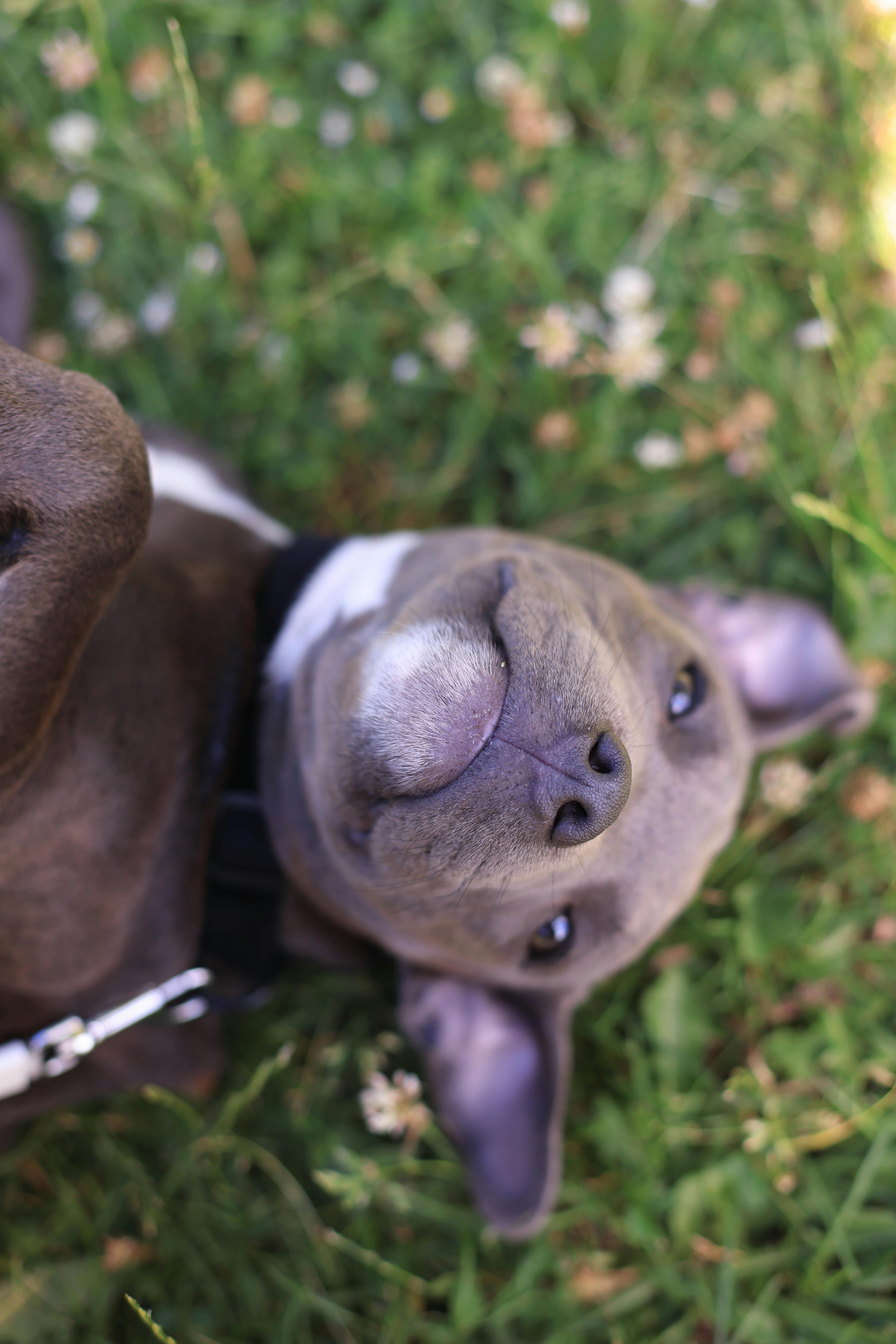
Dogs are one of the most beloved pets around the world, and their unique features often spark curiosity. One of those features is their wet noses, which many people wonder about. Why do dogs have wet noses? Is it just a quirky trait or does it serve an important purpose? In this article, we will answer the top 7 frequently asked questions about dog noses, including the surprising reasons behind their wetness.
1. Why Are Dog Noses Wet?
Many people might think that a wet nose is just something dogs have, but there’s more to it. A dog’s nose is wet for several reasons:
- Temperature Regulation: Dogs don’t sweat like humans do. Instead, they rely on their noses to cool down. The moisture helps to evaporate heat, which can be crucial on hot days.
- Enhanced Smell: The wetness on a dog’s nose helps to trap scent particles in the air. This can make their sense of smell even sharper, which is vital for hunting, tracking, and even just sniffing around the neighborhood.
- Health Indicator: A dog’s nose can also indicate health. A wet nose is often a sign of a healthy dog, while a dry nose might suggest dehydration or illness. But, this isn’t always the case, so it’s important to look at the whole dog, not just their nose.
2. Are All Dog Noses the Same?
No, not all dog noses are the same! Dog noses can differ greatly among breeds. For example:
- Color: Some dogs have black noses, while others may have brown, pink, or even spotted noses.
- Size: The size of a dog’s nose can vary from tiny (like in Chihuahuas) to large (like in Great Danes).
- Shape: Noses can be flat (like in Bulldogs) or long (like in Greyhounds).
These variations can affect how well a dog can smell, and thus, how they interact with their environment.
3. How Do Dogs Use Their Noses?
Dogs use their noses for a variety of reasons, including:
- Identifying People and Places: Dogs can recognize individuals and familiar locations through scent. It’s like a personal GPS system for them.
- Detecting Emotions: Dogs are sensitive to human emotions and can often detect fear, happiness, or stress through scent.
- Communication: Dogs also use their noses to communicate with other dogs. They sniff each other to gather information about health, mood, and reproductive status.
4. Do Dogs Have Sinuses Like Humans?
Yes, dogs do have sinuses, but they are different from human sinuses. Here’s how:
- Structure: Dog sinuses are less complex than human sinuses. They have fewer chambers and are more directly connected to the nasal passages.
- Function: While both humans and dogs use sinuses for breathing and filtering air, dogs’ sinuses are more adapted to their incredible sense of smell, allowing them to be better at detecting scents.
5. What Happens If a Dog’s Nose Is Too Dry?
A dry nose in dogs might not always be a cause for alarm, but it can indicate issues. Some reasons for a dry nose include:
- Dehydration: If a dog isn’t drinking enough water, their nose can dry out.
- Illness: Certain illnesses can cause changes in nose moisture.
- Environmental Factors: Dry air, especially during winter months, can lead to dry noses.
If a dog’s nose is dry for an extended period, it’s advisable to consult a veterinarian.
6. Can Dogs Get Nose Conditions?
Yes, dogs can suffer from various nose conditions, including:
- Nasal Dermatitis: This is an inflammation of the nose and can be caused by allergies.
- Tumors: Just like humans, dogs can develop tumors in their nasal passage.
- Infections: Bacterial or fungal infections can also affect a dog’s nose.
Regular check-ups can help in catching these conditions early.
7. What Should I Do If My Dog’s Nose Is Abnormal?
If you notice any changes in your dog’s nose, it’s important to monitor the situation. Here are some steps to take:
- Observe: Keep an eye on other symptoms like lethargy, coughing, or loss of appetite.
- Hydration: Ensure your dog is drinking enough water.
- Vet Visit: If abnormalities persist, it’s best to consult a veterinarian for advice and possible treatment.
In summary, dog noses are fascinating features that play significant roles in a dog’s life. Their wetness is not just a quirk but serves important functions for health and communication. Understanding more about your dog’s nose can help you care for them better, ensuring they lead a happy and healthy life
Understanding the Importance of Nose Moisture in Dogs: Tips for Keeping Your Pup Healthy
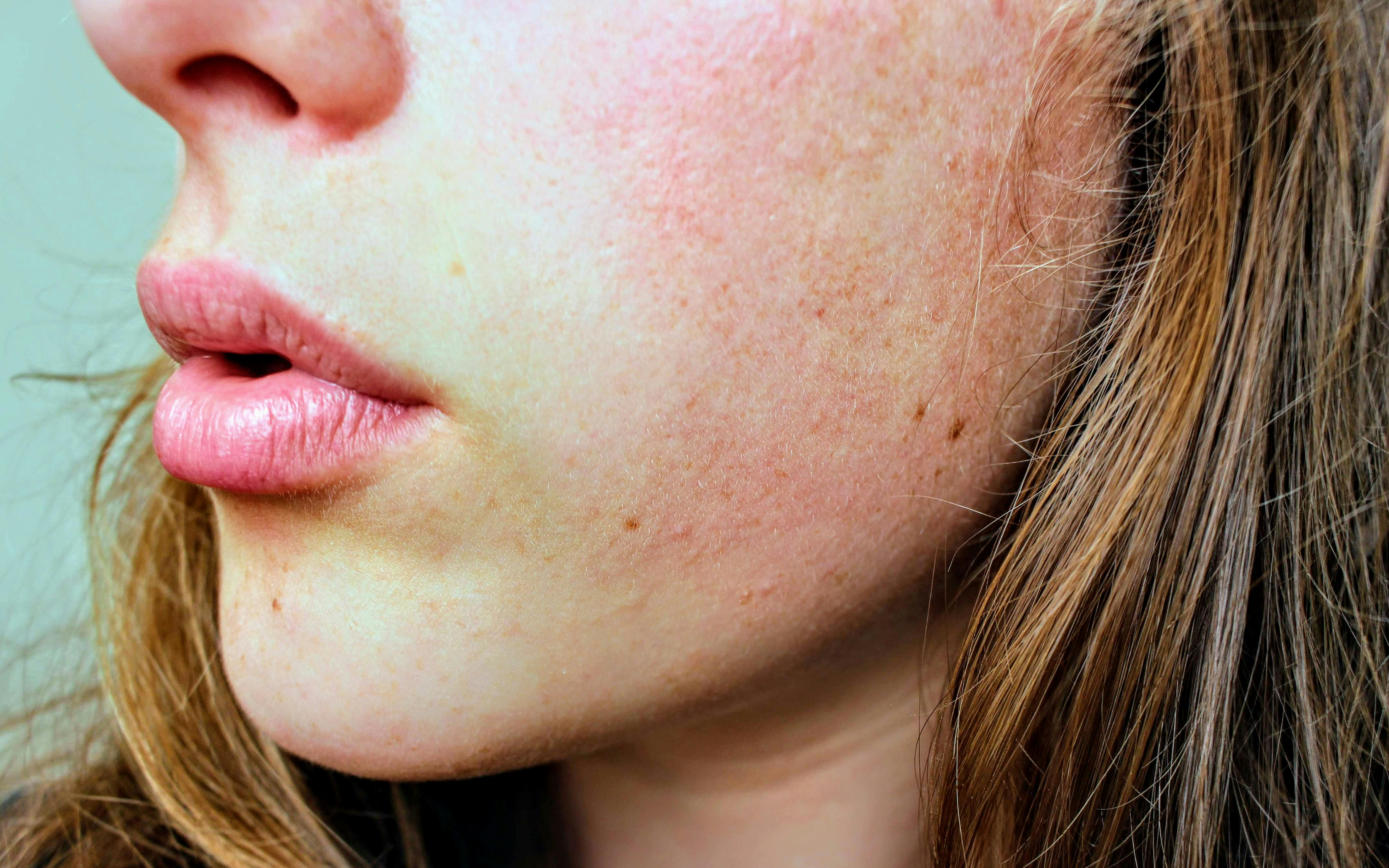
Dogs are such beloved companions, and their health is super important to every dog owner. You might wonder why dogs have wet noses, and the answer is as fascinating as it is essential for their well-being. Understanding the importance of nose moisture in dogs can help you keep your furry friend happy and healthy. Let’s dive into this topic and explore the surprising reasons behind those moist noses and how you can support your pup’s health.
Why Do Dogs Have Wet Noses?
Noses of dogs are usually moist for a few reasons. First off, the moisture helps them to smell better. Dogs have an incredible sense of smell, which is way better than humans’. Their wet noses help to capture scent molecules from the air, making it easier for them to sniff out all those interesting smells they encounter.
Also, dogs sweat through their noses, which helps to regulate their body temperature. Unlike humans, who sweat through their skin, dogs rely on their noses and paw pads to cool down. It’s a unique adaptation that’s been important for their survival.
Here are some key reasons why dogs have wet noses:
- Enhanced Sense of Smell: The moisture on a dog’s nose helps to trap scent particles, which aids in their amazing olfactory abilities.
- Temperature Regulation: Wet noses assist in cooling their body, especially on hot days.
- Health Indicator: A healthy dog usually has a moist nose. Changes in moisture levels can indicate health issues.
The Importance of Nose Moisture in Dogs
Maintaining your dog’s nose moisture is important for several reasons. Firstly, a well-moistened nose can be a sign of overall good health. A dry or cracked nose might indicate dehydration or a potential health issue, so it’s vital to keep an eye on that.
Moreover, nose moisture can help to protect against environmental irritants. Dust, pollen, and other allergens can affect your dog’s health, and having a moist nose can act as a barrier, trapping some of those irritants before they enter their respiratory system.
Tips for Keeping Your Pup’s Nose Moist
Here’s some practical tips for ensuring your dog’s nose stays nice and moist:
- Hydration is Key: Make sure your dog has access to fresh water at all times. Dehydration can lead to a dry nose.
- Humidifier Use: If you live in a dry climate or during winter months, consider using a humidifier to maintain moisture in the air.
- Regular Vet Visits: Regular check-ups with your vet can help catch any potential health issues early.
- Avoid Irritants: Keep your home environment clean and free from harmful chemicals that can irritate your dog’s nose.
Common Nose Conditions in Dogs
Sometimes, a dog’s nose may become dry or cracked due to various conditions. Here are some common nose issues you may encounter:
- Allergic Reactions: Dogs can be allergic to certain foods or environmental factors, leading to dry or irritated noses.
- Infections: Bacterial or fungal infections can cause abnormal changes in nose moisture.
- Autoimmune Diseases: Some autoimmune conditions can lead to dry nose symptoms.
When to See a Vet
If you notice significant changes in your dog’s nose condition, it may be time to consult a veterinarian. Here are signs that warrant a trip to the vet:
- Persistent dryness that doesn’t improve with hydration.
- Cracks or sores that seem painful.
- Change in color, like a red or swollen nose.
- Excessive discharge from the nose.
Fun Facts About Dog Noses
Here are some interesting facts about dog noses that may surprise you:
- Dogs have up to 300 million scent receptors in their noses, compared to about 6 million in humans.
- The shape and size of a dog’s nose can affect its sense of smell; for example, hounds tend to have larger noses to capture more scents.
- Dogs can even detect certain diseases in humans, including diabetes and cancer, through their sense of smell.
Dogs are truly remarkable creatures, and their wet noses play an essential role in their health and behavior. By understanding why dogs have wet noses and how to maintain that moisture, you can help ensure your pup stays healthy and happy. A wet nose is often a sign of a happy dog, so be proactive in caring for your furry friend. Remember, regular check-ups and a watchful eye on their health can go a long way in keeping your dog by your side for many years to come.
Conclusion
In conclusion, the wet noses of dogs serve several essential functions that contribute to their overall health and communication. The moisture on a dog’s nose enhances their sense of smell, allowing them to gather more scent particles and interpret their environment more effectively. Additionally, a wet nose helps regulate their body temperature and can indicate their emotional state, providing insight into their well-being. Understanding these aspects not only deepens our appreciation for our canine companions but also highlights the importance of regular veterinary check-ups to ensure their health. So, the next time you give your furry friend a pat on the head, take a moment to appreciate their unique biology. Consider sharing this knowledge with fellow dog lovers or educating others about the fascinating reasons behind your dog’s wet nose. After all, a deeper understanding of our pets can lead to stronger bonds and happier lives together.

